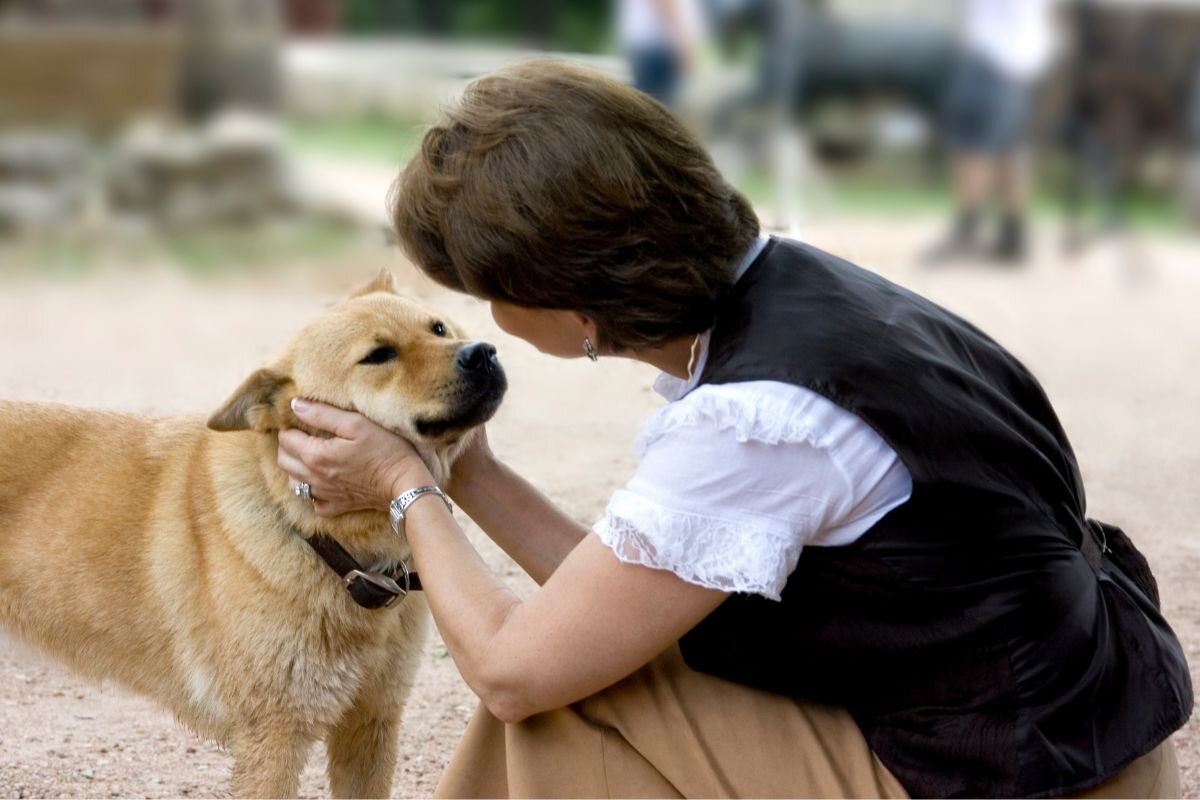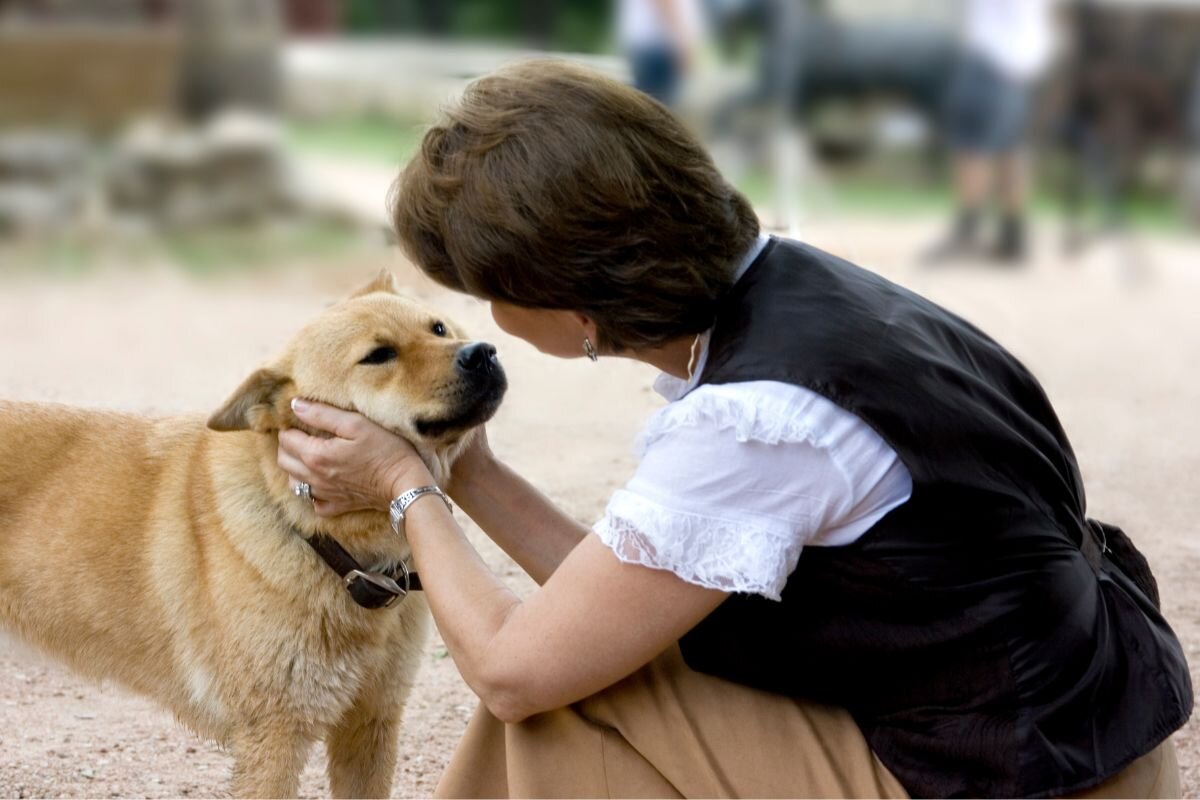Some people may think that communication with a four-legged friend is one-sided. However, for those who share their life with these loyal creatures, conversations with pets are an integral part of their relationship. Interacting with a dog is more than just giving commands or requests. It's about establishing a connection, achieving mutual understanding, and improving the well-being of both the owner and their faithful companion.
Research and experiences from owners around the world indicate that our dogs are not only capable of recognizing individual words and intonations but also reacting to the emotional tone of human speech. This form of communication goes beyond basic care, delving into the emotional and psychological aspects of the bond between human and animal.
By regularly conversing with a four-legged friend, the owner engages in a deep, enriching dialogue that benefits both parties in many ways. The reasons for maintaining such a dialogue - from strengthening the bond to improving training - are significant and rooted in mutual love and respect.
1. Conversations Strengthen the Bond Between You and Your Dog
Regular communication is the cornerstone of the relationship between a person and their four-legged friend. During conversations with a pet, something more profound than mere information exchange occurs - the owner shows attention and care. This ongoing interaction enhances the emotional connection between the owner and their loyal companion, allowing the dog to feel protected and understood.
This situation is similar to the bonds that form between people through conversation, where the exchange of words and emotions leads to deeper understanding and attachment. Dogs are extremely sensitive to their owner's voice and can pick up nuances in tone that indicate approval or disapproval. By talking to their four-legged friend, the owner reassures them of their presence and loyalty, which can significantly strengthen the overall well-being of the pet and their attachment to the owner.
2. Help in Training and Behavior Correction
One of the practical benefits of conversing with a four-legged friend is the role it plays in training and correcting the pet's behavior. While commands are part of this process, constant dialogue helps the dog understand the owner's expectations beyond basic commands like "sit" or "stay." Through regular communication, dogs learn to associate specific words or phrases with actions or results, which can be incredibly useful for reinforcing positive behavior patterns and eliminating unwanted ones.
Furthermore, the owner's voice intonation can significantly influence the dog's perception of their speech, with positive reinforcement often leading to more successful and rapid training results. By integrating verbal interaction into the training process, the owner creates a more nuanced and effective learning environment that can adapt to the dog's individual characteristics and learning style.
3. Develop Your Dog's Social Skills
Communicating with a four-legged friend also plays a crucial role in developing their social skills. Similar to how children learn to listen and interact with adults, dogs learn to interpret verbal signals from their owners. This interaction helps pets understand different social situations and react appropriately to them.
Regular dialogue with a dog can reduce their anxiety in social settings, making it more comfortable for them to be around other dogs and people. This practice can teach animals to positively respond to verbal interaction, making walks and public events more enjoyable for all participants. By using a wide vocabulary and exposing the pet to various intonations and contexts, the owner helps broaden their understanding of the human world, making the dog more adaptable and confident in social situations.
4. Supports Cognitive Development and Mental Stimulation for Your Dog
Communication with a dog is not just about establishing an emotional connection but also about stimulating cognitive development. Dogs that regularly interact with their owners verbally are exposed to a variety of words and sounds that can enhance their understanding and foster mental flexibility.
This verbal stimulation can be especially beneficial for young animals during their formative years, but it is also valuable for elderly dogs in maintaining sharpness of mind. Engaging cognitive abilities through speech can help stave off age-related cognitive decline in older pets, sustaining their intellectual activity and engagement. Moreover, the mental challenge they receive from trying to interpret the owner's words and respond to them can bring as much satisfaction and enrichment as physical exercise.
5. Contributes to Emotional Healing and Comfort
The process of verbal interaction with a four-legged friend can have a therapeutic effect not only for the pet but also for their owner. For dogs that have experienced traumatic events or distress, the sound of a calm voice can have an incredibly soothing effect. This can help build trust in scared or mistreated animals, showing them that they are in a safe and loving environment.
For the owner, conversing with their pet can be equally comforting, providing a sense of companionship and understanding unique to the relationship between a domestic animal and its owner. This mutual emotional support helps create a healing atmosphere where both the dog and the human can find comfort and solace in each other's presence.
6. Fosters a Sense of Belonging to the Family
Incorporating a four-legged friend into the daily rhythm of family life through conversation helps instill a sense of belonging and involvement in the pet. When the owner talks to their dog as they would to a family member, they reinforce the animal's role within the family unit. This sense of belonging is crucial for the social and emotional well-being of the dog, allowing them to feel valued and loved. This simple yet effective way of conveying to the pet that they are an integral part of the owner's life and family can significantly impact the happiness and loyalty of the four-legged friend.
Conclusion
In conclusion, the benefits of conversing with a four-legged friend go far beyond simple command exchange. It is a practice that strengthens the bond between the owner and their pet, contributes to the training and social development of the animal, stimulates their cognitive abilities, and provides emotional support and comfort. By making conversation an integral part of interacting with a dog, the owner consciously enriches the lives of both. Whether it's a detailed discussion of the day's events or a casual chat about the weather, each word spoken strengthens the connection and understanding between the human and their faithful companion.








